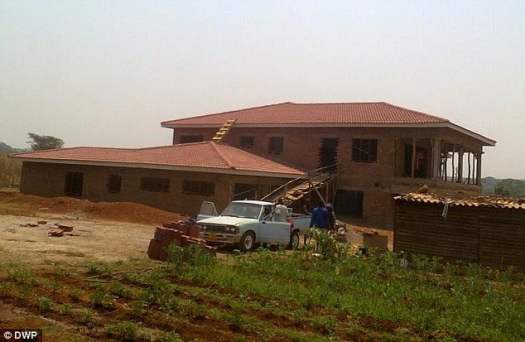Press statement by Dr Nkululeko Sibanda –MDC Alliance Presidential Spokesperson
A credible, free and fair election is going to be an outright victory for President Nelson Chamisa, as indicated by all credible opinion polls. President Chamisa will garner no less than 65% of the vote as the momentum for real change and transformation grips the nation.
The nation is ready to behold the new and enjoy change that delivers. Without doubt the MDC alliance has become a household name, dominating the discourse of foes and friends alike, all age groups, cutting across different tribes and races, blaring the fictitious divide between the rural and urban.
Change has become the national mantra and a universal clarion call by all citizens, including those in ZANU PF. As a presidential candidate he has brought a fresh perspective to campaigning, daring Zimbabweans to dream again. He has exuded a combination of clarity of vision, unrivalled charisma, incredible hard work, undisputed policy clarity, great intellect and great skills.
President Chamisa has impeccable international posture and stature through unparalleled skills in statesmanship, brinksmanship and diplomacy.
In just over 4 months, President Nelson Chamisa, together with the people of Zimbabwe, has changed this country’s political landscape, including increasing the electoral fortunes for the MDC Alliance.
As we enter the last stretch in this campaign President Nelson Chamisa is enjoying an upsurge in support, levels of trust, policy clarity and leadership grandeur. He has unpacked a bankable and credible message on job creation, good governance, social service delivery, robust and modern infrastructure for the country and provided credible answers to fundamental national questions.
These include:
1. Cash crisis
2. Corruption
3. Dilapidated infrastructure
4. Poverty
5. Poor services in health, education and welfare
6. State party conflation
This country has had so much about an earthquake, now we see that a political one will take place on the 30th of July. This according to polls, is not negotiable. It is hot under the bridge. We are now certain, more than ever, before an election that a landslide victory is no longer in doubt.
Various credible polls, including the Afro Barometer show that:
1. President Nelson Chamisa will win the forthcoming election comfortably, with double digit margins over the ZANU PF candidate. Given that only opposition supporters are likely to refuse to state their voting intentions, the 20% that refused to state their voting intentions are his voters. As such, nearly all these voters are in President Chamisa’s column, meaning that his weighted total is 57% as a minimum. Our projections show that he will win by 65% of the vote.
2. The majority of Zimbabweans trust President Chamisa over any politician in this country or public figure in political leadership.
3. President Nelson Chamisa is breaking world records in terms of political momentum, within months he has increased his poll number by over 15%. These rates have not been achieved by any politician in the world.
4. President Nelson Chamisa’s policies are favoured and believed by a majority of Zimbabweans.
5. President Nelson Chamisa brings integrity to Zimbabwean politics
6. President Chamisa is trusted to create more jobs for the people of Zimbabwe and this by a 10 points margin. Looking at this number and the fact that most Zimbabweans want jobs, it is clear that most Zimbabweans will vote for someone who will create jobs.
Given these facts, there is one conclusion to be made of the current polling. It shows that President Nelson Chamisa will be elected as the Head of State and Government for Zimbabwe on the 30th of July 2018. The polls show that there will be no rerun as an outright victory is certain.
President Nelson Chamisa has introduced a fresh and new kind of politics, which is anchored on impeccable Statesmanship, great ideas, smart policies, building credibility and exemplary leadership.Clearly the people of Zimbabwe have welcomed the new and are going to usher a new era for Zimbabwe’s history. Now Zimbabweans can be confident that the future of this country will be secured on the 30th of July 2018. They can trust that fellow Zimbabweans are working for a better country.
The President thanks Zimbabweans for both their exceptionalism and determination to make our country great again.



































 Winston Chitando
Winston Chitando









































 By Nomusa Garikai| MDC T leader Thokozani Khupe has castigated fellow opposition parties who are threatening to boycott the July 30 polls, reported ZimEye.
By Nomusa Garikai| MDC T leader Thokozani Khupe has castigated fellow opposition parties who are threatening to boycott the July 30 polls, reported ZimEye.






































































 A 38-year-old Domboshava man appeared in court yesterday after he allegedly tried to kill his three children by poisoning them.
A 38-year-old Domboshava man appeared in court yesterday after he allegedly tried to kill his three children by poisoning them.